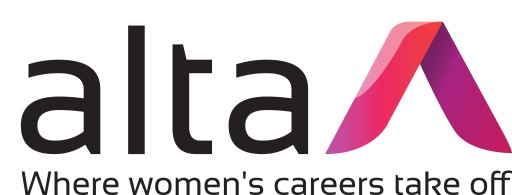The Problem
The challenges of greater gender balance at senior management levels and on corporate boards are faced by businesses worldwide (Durbin, 2015). Working hours are critical to career advancement and women rather than men tend to seek a reduction in hours at career defining life course stages. Our previous research demonstrates that women face stagnating careers when they reduce their working hours (Durbin and Tomlinson 2010; 2014). However, there has been very limited research focusing upon executive/senior management careers of women and men in relation to reduced hours working.
Part-time, or reduced hours working, is the most widely utilised form of flexible working in organisations in the UK. Yet despite its widespread use – there are more than seven million part-time workers, 75% of whom are women (ONS 2018) – it is not evenly dispersed throughout occupational categories but tends to cluster in low paid, low skilled occupations. While part-time work has grown in professional occupations, the same cannot be said for managerial occupations. Indeed, in the managers, directors and senior officials occupation, less than 4% of jobs are occupied on a part-time basis (ONS 2018).
This has significant consequences for the utilization of women’s skills, pay and career opportunities across the life course. The issue of flexibility in middle management careers has been the focus of a Government Equalities Office seminar on a wider programme of research and evidence on what can be done to reduce the gender pay gap (Tomlinson 2018). The Chartered Institute of Personnel and Development (CIPD) has also recently released an authoritative ‘Mega Trends’ report on flexible working. This report lays bare the paucity of flexible jobs at a managerial level, including executive levels and cites our work (Durbin and Tomlinson, 2014) which focuses upon how part-time working can impact the careers of managers. In the context of an increased interest in workforce flexibility and flexible working arrangements that facilitate work life balance, the question of whether careers (rather than work) can be successfully navigated flexibly is an open question (Tomlinson et al. 2018).
We know from previous research that certain flexible working practices can facilitate career sustainability across the life course and particularly at critical life junctures, such as following maternity (Chung 2018). Yet while there are notable recent studies on the use of flexible work, these tend to focus exclusively on the experiences of women (Chung 2018; Young 2018), as did earlier studies (Crompton and Lyonette 2014; Durbin and Tomlinson 2010, 2014).
The Project
As researchers who specialise in women’s careers and in tackling gender inequalities in the workplace and labour market, we believe that making reduced hours working available at senior levels would enable more women to step forward into senior roles. We also believe that this opportunity should be open to men. Women’s work, especially when performed on a reduced hours basis, is under-valued and not enough women are making it into senior roles. For most women, and some men, having the opportunity to work the hours that would enable them to have a work/family balance could be key to their future prospects and benefit the wider businesses in which they work. The support of employers is key to making this happen. This research enables us to get in touch with senior men and women working on reduced hours basis and to explore why and how they reduced hours and what that means for their senior careers.
The project began in November, 2019 and is funded by the British Academy/Leverhulme Trust. It departs from currently existing research and asks, with the rise in the use of flexible working arrangements at the organisational level, and a drive for more inclusive workplace cultures, what are the prospects for navigating executive and senior management careers while working reduced/part-time hours? When individuals at senior levels do work reduced hours, what are their experiences of work in terms of job quality and growth potential, and how do the experiences of reduced hours working compare and contrast between male and female executives and senior managers? Furthermore by focusing exclusively upon executives and senior managers, this research explores the experiences of organisational leaders who have reduced hours and the strategies they employ to manage a demanding position requiring leadership and visibility while working less than full time, and the extent to which they feel they can act as role models for others seeking to advance careers on a flexible basis. We address this important research gap to better understand how male and female senior managers navigate flexible careers and how gendered assumptions might impact their careers.
Our Partners
We are working with seven external partners who have offered their support to the project. All have a keen interest and take active roles in the promotion of gender equality in organisations. They know the importance of gender diversity at all levels of organisations and the business benefits this can yield. Crucially, they are able to help us to access and interview the rare and hard to reach executives and senior managers who work on a reduced hours basis, in the UK.
Flexology (flexible working specialists in the recruitment of professional part-time and flexible working roles and the design and implementation of flexible working practices); Workwell (a HR and people change consultancy, providing support in the areas of HR/people support, flexible working, project management, strategy, stakeholder management and research); Teach First (a charity that was set up to address educational disadvantage in the UK and is currently extending the uptake of job share working at senior levels); the Bristol Women in Business Charter Community Interest Company (which supports the operation of a city-wide Charter recognising and supporting progress on gender equality in city businesses). One of the goals Charter signatories commit to is the promotion and increased availability of flexible and part-time working, especially at senior levels that attract better pay and conditions; Timewise (an organisation that was founded to tackle the lack of quality part-time jobs and to encourage more organisations to open up to both men and women jobs on a flexible basis, at all levels of organisations); Fair Play South West (the women’s equality network for the South West of England, researching and consulting women on their aspirations and barriers to achieving them and campaigning for change); Moon Executive Search (undertakes executive recruitment for senior management and board level roles and other highly skilled candidates).
How the project is being conducted
The project is being conducted through virtual interviews with male and female executives and senior managers working reduced hours in organisations across the UK private sector. Interviews began just before ‘lockdown’ (March, 2020). Through the interviews we are exploring the experiences of male and female executives and senior managers in relation to: how and at which point in their career they accessed reduced hours working; reasons for working reduced hours; the quality of their role since reducing hours; how senior managers anticipate navigating their future careers while working reduced hours; the prevalence of organisational and other forms of support, including mentoring and networking; aspirations for and the realities of further advancement since switching to reduced hours working; and the support received from their employers, as a reduced hours senior member of the organisation. Importantly, the interviews also explore the impact of the pandemic on interviewees’ careers, including working from home, their views on this new way of working and its potential future ‘normalisation’, organisation readiness for lockdown/working from home and the general impact of covid on the individual and their ability to work from home.
The project will culminate in an end of project event (September/October, 2021), involving all research participants and partner organisations, key business leaders, policy makers and groups set up to support gender balance in business. At this event, we will present the key research findings and discuss recommendations for best practice, alongside a panel of business experts and policy makers who are keen to promote the social and business benefits of reduced hours and wider policies on flexible working. This would also be of interest to and engage with those campaigning for a shorter working week as a means to improving mental and physical well-being, work-life balance and creating a better standard of life for all (e.g. Spencer 2009, 2015). And to those interested in the knock on effects of the pandemic, such as working from home and how organisations are supporting their workforces.




